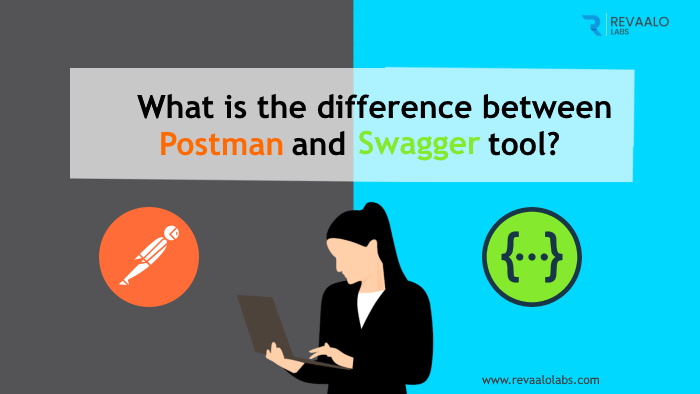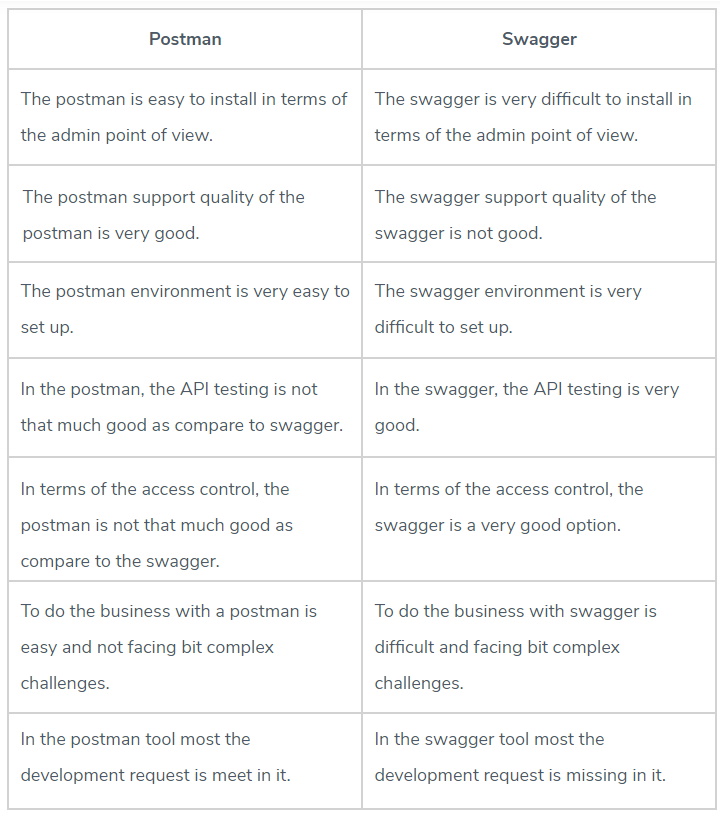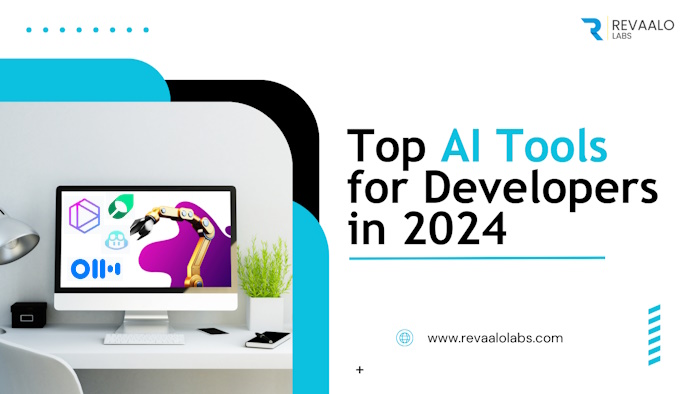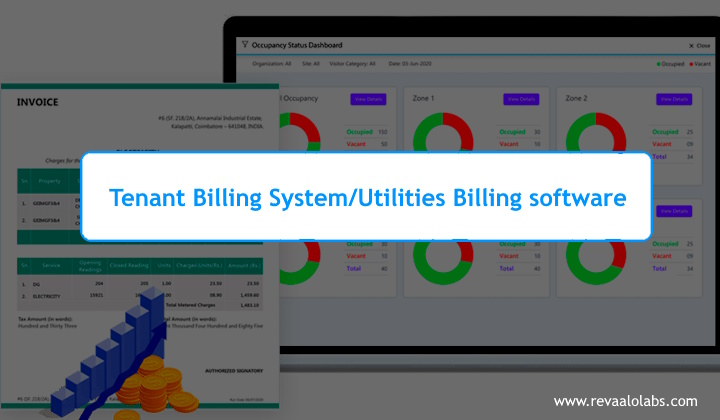#Postman #Swagger #tool

In this blog, we explore some of the most commonly used tools for REST API testing and how to use some of their most important features, as well as how to determine which tool is best for a given development process.
Swagger is an API specification & Postman is an API Client and appropriate for API first development while,
In this case, Postman is the most appropriate tool for testing APIs that are based on specifications.
Postman: A Brief Intro
Postman is an API platform for building and using APIs. Postman simplifies each step of the API lifecycle and streamlines collaboration. We can use Postman to test our API without writing any code.
Using postman request can be made to the server and the response can be received. It is a widely used tool due to its easy interface so any novice user can easily use it. HTTP requests can be performed in a simple manner.
New users can also learn how to use Postman through the tool`s comprehensive documentation and web tutorials.
Key Features of Postman
Widespread features:
This feature will support all types of HTTP requests. The widespread support features will also include multiple things like it will be be capable to handle the plain text code, multiple parameters, XML code, JSON code, multiple headers, validations, etc.
Collection:
Folder structured components that will hold a group of requests to be executed. Whether it is by server, functionality, business-related needs, or another, these collections can be categorized based on users` requirements.
Environments:
Environment plays a very important role in the postman ecosystem. Postman will use the environment as a global variable. Key-value pair based information is gathered in the environment.
Import-Export capabilities:
Postman imports and exports data using JSON standards. It`s not just possible to import/export single requests, but also entire collections, environments, and even previously used test runners.
Swagger: A Brief Intro
Swagger is basically a description language that is used for the description of RESTful API. It is open-source software.
Initially, it came out in 2011. Developed by SmartBear software, this software is credited to them.
Generally, when we talk about Swagger, we mean a set of rules, specifications, and tools that help us document APIs. This way, we can create documentation that is actually useful for the people who need it. It helps us create documentation that everyone can understand by using Swagger.
Key Option of Swagger
Open source tools:
In other words, a swagger is a tool that makes it easy to manage multiple tasks individually. It will help update, share, and define APIs. Also, it will depend on the consumers.
Swagger:
We can say that swaggerHub is the platform solution. This will provide support for the open API workflows.
OpenAPI specification:
Swagger`s supremacy will start with its design of OpenAPI. Most industry standards for the design of Restful APIs will be met by it.
Postman vs Swagger Comparison Table

We can choose between postman and swagger depending on our needs. Postman is useful for quickly testing HTTP requests, while Swagger is generally helpful for APIs.
Hope you liked it. If you have any requirement related to Software Development feel free to connect with Revaalo labs your one stop solution for Digital Transformation needs.

One of the most critical decisions website developers must make is deciding what unit of measurement to use when sizing elements, fonts, and other design properties.
Read more
It`s an amazing technology-one that will help us solve society`s toughest problems and reshape the world.
Read more13
December

Today, web browsers play a significant role in our lives, providing us with access to a world of information and possibilities.
Read more
Power BI is a popular business intelligence tool developed by Microsoft for data visualization and analysis. While Power BI is a robust solution, there are several alternatives available that cater to different needs and preferences.
Read more09
October

Tenant billing systems are software solutions used by property owners, managers, and landlords to accurately bill tenants for their usage of utilities and services.
Read more